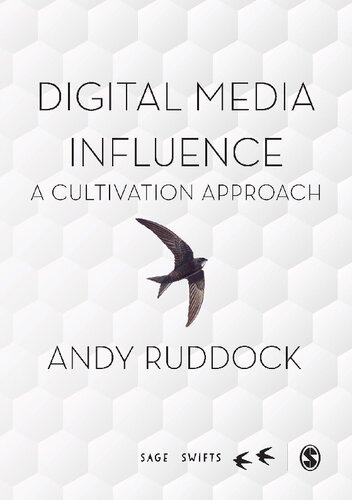

Most ebook files are in PDF format, so you can easily read them using various software such as Foxit Reader or directly on the Google Chrome browser.
Some ebook files are released by publishers in other formats such as .awz, .mobi, .epub, .fb2, etc. You may need to install specific software to read these formats on mobile/PC, such as Calibre.
Please read the tutorial at this link. https://ebooknice.com/page/post?id=faq
We offer FREE conversion to the popular formats you request; however, this may take some time. Therefore, right after payment, please email us, and we will try to provide the service as quickly as possible.
For some exceptional file formats or broken links (if any), please refrain from opening any disputes. Instead, email us first, and we will try to assist within a maximum of 6 hours.
EbookNice Team

Status:
Available4.4
15 reviewsPopulism, misogyny, rampage murders. Digital media seem to lie at the heart of sinister, intractable social challenges. Curiously, the very societies who fear such things are often dismissive of media research. Addressing key issues affecting global media industries, this book explains how to solve the present conundrum by appreciating the historical development of cultivation theory. Paying close attention to the life and work of George Gerbner, Digital Media Influence locates today’s questions in the historical forces and relationships that moved media industries closer to the heart of global politics in the mid-20th century.It makes Gerbner’s work relevant to all critical media researchers by providing a theoretical, methodological and historical steer for understanding new media influences. In explaining how one of the world’s leading media theories developed in relation to intriguing historical circumstances – many of them deeply personal – this book helps researchers of all levels to find their voice in writing on media issues.
Digital Media Influence ties cultivation themes, such as mean world syndrome, mainstreaming, the celebration of white male violence, the ridiculing of ageing women, the inhibition of activism, the mediatisation of religion and the erosion of trust in education, with contemporary digital media case studies. Considering the aftermath of the Parkland murders, political memes, Islamophobia, the fate of female reality TV stars and the bad press directed at media education, Ruddock shows how these phenomena are born of media practices that cultivation theory began to dissect in the 1950s.